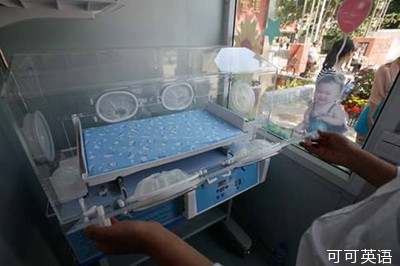民政部社会福利和慈善事业促进司司长詹成付近日表示,为了保障弃婴的生存权,石家庄试行的弃婴“安全岛”做法或将推广到国内其他大城市。
请看《中国日报》的报道:

A "safe haven" station for abandoned babies in Shijiazhuang, the capital of Hebei province. The air-conditioned room features an incubator and a cradle and provides a safe alternative to child abandonment in dangerous public areas.
China may expand a controversial pilot program that provides "safe havens" for abandoned children to major cities, a top Ministry of Civil Affairs official said on Tuesday.
民政部一位高级官员周二表示,中国或将颇受争议的弃婴“安全岛”试行机制推广到几个大城市。
Safe haven原意是指“安全港、安身之处”,如:He will not find a safe haven here.(他在这里是找不到安身之处的。)它还可以引申为提供某种形式的“庇护”,如:In 2000 this agent offered al Qaida safe haven in the region.(这名情报人员在2000年为基地组织在该地区提供庇护)。
在讲到弃婴(abandoned children)收置时,safe haven指政府部门或社会福利机构指定的可以抛弃婴儿的安全场所,通常是医院、警察局、救援中心、消防站等,称为“安全港”或“安全岛”。
不少国家都有安全港法案(safe haven law),允许婴儿的监护人在婴儿出生后规定时间段内将婴儿抛弃到安全地点,不必留下姓名,不必办理送养手续,更不会遭到起诉。制定这样的法案是为了保障弃婴的生存权(guarantee abandoned children's right to live)。












